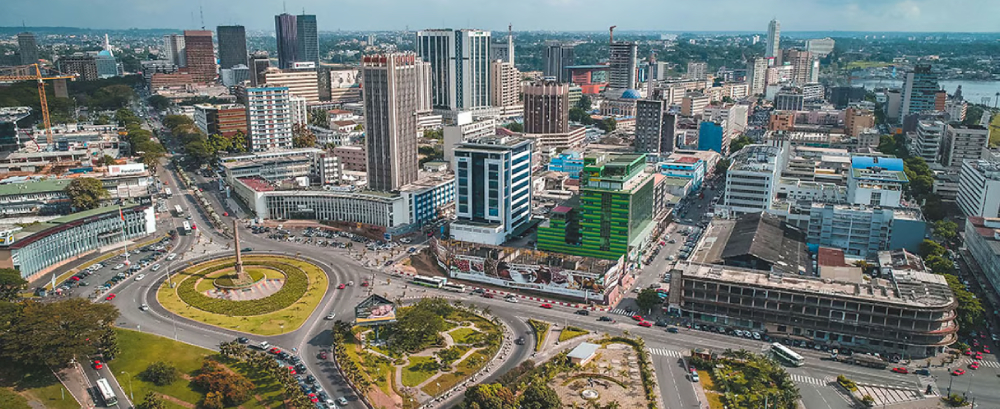
Benin
April 12, 2025
Togo
April 12, 2025Côte d’Ivoire, also known as Ivory Coast, is a West African country rich in natural resources, including a variety of mineral deposits. Over the past few decades, the mining sector in Côte d’Ivoire has seen significant growth, particularly in gold mining, which has become a key component of the country’s economy. Here’s an overview of the key mineral resources in Côte d’Ivoire:
Key Mineral Resources
Gold:
Overview: Gold is the most significant mineral resource in Côte d’Ivoire, and the country is one of the leading gold producers in Africa. The mining sector has attracted substantial foreign investment, and several large-scale gold mines are in operation.
Major Gold Mines: Notable gold mines in Côte d’Ivoire include the Tongon mine, Agbaou mine, Ity mine, and the Sissingué mine.
Reserves: Côte d’Ivoire has substantial gold reserves, and ongoing exploration activities suggest the potential for further discoveries.
Bauxite:
Overview: Bauxite, the primary ore of aluminum, is found in several regions of Côte d’Ivoire, particularly in the Man and Touba areas. Bauxite mining is still in its early stages, but the potential for future development is significant.
Reserves: The bauxite reserves in Côte d’Ivoire are promising, with ongoing exploration aimed at determining their full potential.
Manganese:
Overview: Côte d’Ivoire has significant deposits of manganese, particularly in the region of Bondoukou. Manganese is a critical industrial metal used in steel production.
Reserves: The manganese reserves are considerable, with ongoing mining operations contributing to the country’s exports.
Iron Ore:
Overview: Iron ore deposits are present in Côte d’Ivoire, particularly in the west and northwest regions. The development of these resources is still in its early stages, but they hold significant potential.
Reserves: The iron ore reserves are promising, with potential for future exploration and development.
Nickel:
Overview: Côte d’Ivoire has nickel deposits, particularly in the region of Biankouma and Sipilou in the west. Nickel mining is not yet fully developed, but there is interest in exploring and developing these deposits.
Reserves: The nickel reserves are significant, with potential for further exploration and investment.
Diamonds:
Overview: Côte d’Ivoire has deposits of alluvial diamonds, particularly in the regions of Séguéla and Tortiya. Diamond mining is mostly artisanal, although there is potential for larger-scale operations.
Reserves: The diamond reserves are modest, with potential for further exploration and development.
Copper:
Overview: Copper deposits have been identified in Côte d’Ivoire, particularly in the regions of Toulepleu and Duekoué. While copper mining is not yet fully developed, there is potential for future exploration.
Reserves: The copper reserves are significant, with ongoing exploration activities aimed at assessing their full potential.
Cobalt:
Overview: Cobalt, often associated with nickel deposits, has been identified in Côte d’Ivoire. This mineral is essential for battery production, particularly for electric vehicles.
Reserves: The cobalt reserves are still being explored, with potential for future development.
Investment and Extraction Situation
Gold Mining Dominance: The gold mining sector dominates the mining industry in Côte d’Ivoire. The country has attracted substantial foreign investment in this area, leading to the development of several large-scale gold mines. The government continues to promote gold exploration and mining to boost economic growth.
Emerging Sectors: While gold is the most developed resource, other minerals like bauxite, manganese, iron ore, nickel, and diamonds are gaining attention. The government is encouraging investment in these sectors to diversify the mining industry.
Artisanal and Small-Scale Mining: Artisanal and small-scale mining (ASM) is prevalent, especially in gold and diamond mining. While ASM plays a crucial role in local economies, it faces challenges such as lack of formalization, environmental degradation, and safety concerns. The government is working to regulate and formalize these activities to improve sustainability and productivity.
Environmental and Social Impact: Mining activities in Côte d’Ivoire must balance economic benefits with environmental and social impacts. Issues such as land degradation, water pollution, and community displacement are of concern. The government is focusing on promoting sustainable mining practices and engaging local communities in decision-making processes.
Infrastructure Challenges: Infrastructure development, such as transportation and energy supply, is crucial for the efficient extraction and export of mineral resources. The government is working to improve infrastructure to support the growth of the mining sector.


